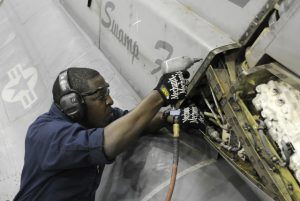When you cut through all the noise, hype, and confusion around blockchain and zero in on the areas where this innovative technology promises to provide real business value, only a few areas come to light.
The first, most promising area for blockchain is in complex, multiparty supply chains. Blockchain is potentially well-suited to keep track of the current state of any business interaction (say, negotiating a contract) across multiple parties and geographies, while providing an immutable audit trail for all concerned parties.

Another potentially lucrative use case for blockchain: provenance. If you need to know where something came from as well as how it got where it is, blockchain could be quite useful for keeping track of the data associated with whatever you’re trying to keep track of. It’s no wonder, therefore, that blockchain has found its way into various anti-counterfeiting business models.
3IPK’s Story
I recently spoke with 3IPK, a company that is bringing both of these promising business models together for the aviation industry.
3IPK is a startup that is developing a solution that – if all goes according to plan – will eventually automate certification, airworthiness, supply chain, and maintenance processes, not only for aerospace, but also for automotive, defense, and nuclear sectors.
Their starting point, however, is fixing some of the more pressing issues with aviation supply chains. “There’s a large supply chain in the aviation industry with a lot of data,” explains Maria Capova, cofounder and CEO of 3IPK. “Some of it is not reliable due to lack of approvals traceability, which causes large overhead to manage the data.”
At every step in the supply chain, one company must provide an approval to the next in order for commerce to continue to flow. Traditionally, the aircraft manufacturer had to keep track of all this information. “The aircraft manufacturer has the contracts with their tiers of suppliers,” Capova says. “They have to comply with the rules of the manufacturer.”
One of the most touted benefits that some blockchains provide is a decentralized architecture, where instead of a central party like the manufacturer controlling the information in its supply chain, each party is responsible for its own transaction processing node – and the underlying technology keeps all such nodes synchronized securely.
3IPK built its solution on DCore, the blockchain platform from DECENT. However, while DCore supports decentralized architectures, the blockchain’s role as an immutable ledger is more important for 3IPK. “Blockchain is good for the immutability of data,” Capova explains. “When you store documents in the blockchain, they stay on the blockchain forever.”
3IPK can thus maintain a full audit trail for every part in the supply chain, all the way back to the manufacture of the part. “We store the whole lifecycle of a part,” Capova says. “We guarantee the originality and identification of a part in order to detect fake parts.”
Read the entire article at https://www.forbes.com/sites/jasonbloomberg/2018/10/12/two-knotty-problems-that-blockchain-promises-to-solve/.
Intellyx publishes the Agile Digital Transformation Roadmap poster, advises companies on their digital transformation initiatives, and helps vendors communicate their agility stories. As of the time of writing, DECENT is an Intellyx customer. None of the other organizations mentioned in this article are Intellyx customers. Image credit: South Carolina Air National Guard.



